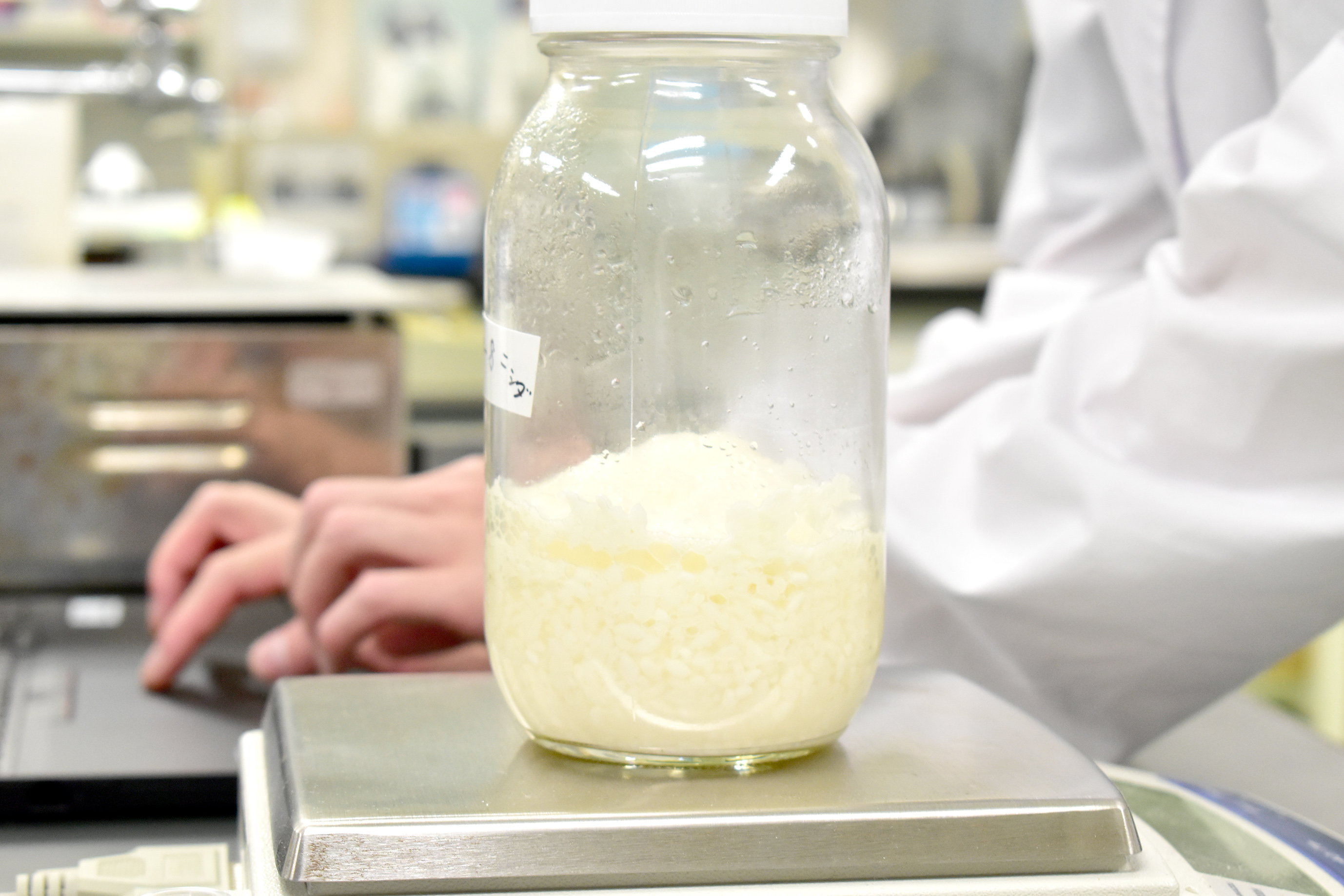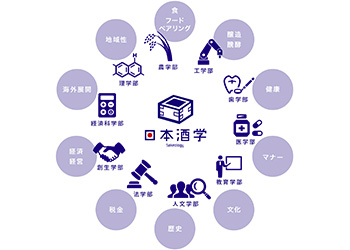Life and Food Sciences
Life Sciences|Applied Life and Food Sciences|Agriculture and Bioresources|Sakeology

Covering broad disciplinary areas from basic biology to agriculture and applied science in related industries and based on the awareness of the modern trend of genome to post-genome life sciences, we nurture individuals with abilities to fundamentally understand life phenomena and to become a pioneer in a variety fields for development of new technology, improvement of regional industries, the environment, and the economy. We welcome students who show strong interest in understanding life phenomena,”̋ food and agriculture̋,“ ̋and “ harmony with the environment .”
Life Sciences
Master’s Program
Master’s Program: We provide education and conduct research at the leading edge of basic biology from the level of individual organisms to molecules, on such topics as the development and morphogenesis of plants and animals, organ and cell differentiation, cellular interactions, environmental responses, expression of genetic information, organelles, intracellular supramolecular structures, and proteins and sugar chains. Students are expected to acquire broad knowledge and perspective on life phenomena.
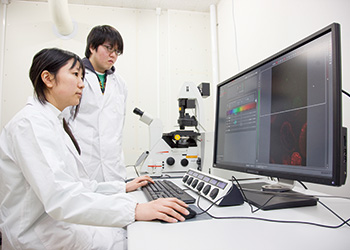
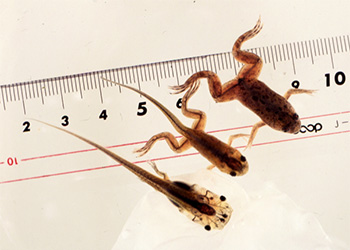
Doctoral Program
Doctoral Program: We promote education and research on diverse life activities of a variety of living creatures from a wide range of angles and from the level of molecules to individuals. The fields we cover correspond to biochemistry, molecular genetics, molecular biology, cytology, embryology, physiology, and immunobiology. By systematically connecting these fields and introducing the leading edge of technology, we comprehensively provide education and conduct research from basic to advanced science. Instead of adopting a passive stance of receiving education, students are expected to learn actively by inquiring into the questions they set for themselves.
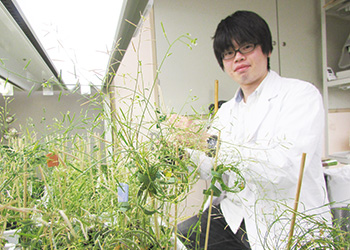
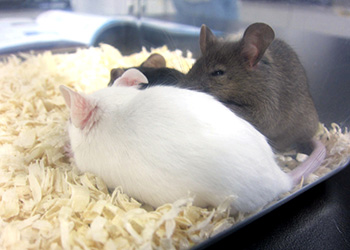
Applied Life and Food Sciences
Master’s Program
Master’s Program: We nurture individuals with abilities to elucidate various problems related to bioresources, food, and the environment through application of knowledge and skills on bioscience and biotechnology. To achieve this goal, we provide advanced research on elucidation of the mechanisms of biological control of plants, microorganisms, and animals; advanced use of enzymes; exploration and biosynthesis of physiologically active substances; manufacturing technology of new food products; development and its mechanisms of functional food materials; interactions among soil, microorganisms, and plants; preservation and restoration of the environment; and development and effective use of wood biomass.
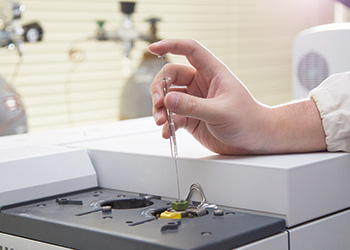
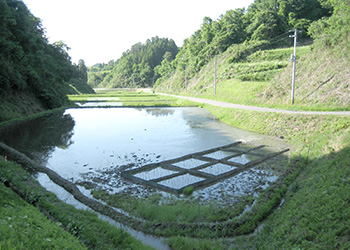
Doctoral Program
Doctoral Program: We nurture individuals capable of analyzing life phenomena based on the latest bioscience and biotechnology and developing technology for the production and use of bioresources. We provide advanced research on the functions and control of genome; nutrient absorption and metabolic regulation of plants; regulation of organelle genesis; exploration and biosynthesis of physiologically active substances; elucidation of enzymatic functions; physiological and nutritional functions of food and useful components; development and use of new food materials; interactions among soil, microorganisms, and plants; and effective use of wood biomass.
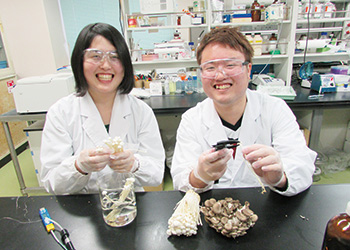
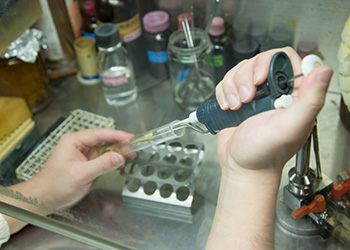
Agriculture and Bioresources
Master’s Program
Master’s Program: By conducting technological research on basic agricultural sciences, fieldscience, and biotechnology, we elucidate the mechanisms of plant and animal resources production, which provide the foundation of agriculture. At the same time, we conduct necessary research for solving various issues related to maintenance of complex ecosystems, rural development, sustainable development of agriculture, and development of related industries, such as distribution and retail of agricultural produce and forest products. To achieve these educational and research goals, we have introduced three fields: food and resource management; plant production; and animal production.
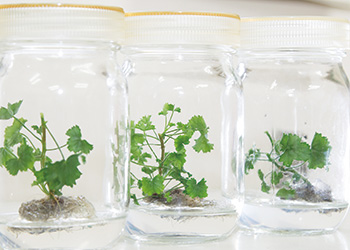
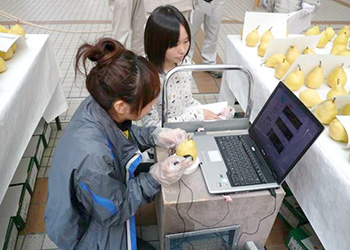
Doctoral Program
Doctoral Program: By conducting technological research on basic agricultural sciences, field science, and biotechnology, we elucidate, from the molecular, individual, and ecological levels, the mechanisms of plant and animal resources production, which provide the foundation of agriculture. At the same time, we conduct necessary research for solving various issues related to maintenance of complex ecosystems, rural development, sustainable development of agriculture, and development of distribution and retail of agricultural produce and forest products. We also aim to promote partnerships with regional communities and contribute internationally towards solving issues related to agriculture and forestry in Asia. To achieve these educational and research goals, we have introduced three fields of the food and resource economy, plant production, and animal production.
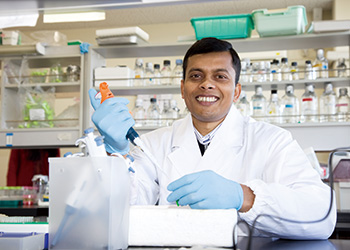
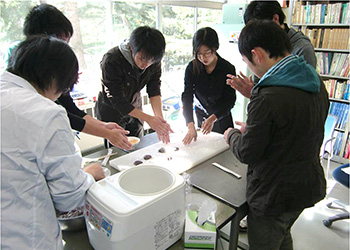
Sakeology
Master’s Program
Master’s Program:The sakeology course is a science-integrated educational program that covers various sake-related fields. In the master’s program, with sake as a common axis, we will provide education and conduct research with a bird's-eye view of a wide range of areas related to sake, such as raw materials for sake brewing, sake production, sales, consumption, culture, history, traditions, and health, in addition to the areas of specialization of the students. Students acquire the knowledge and skills of their field of study through the Department of Life and Food Science. Students also receive a wide range of knowledge centered on sake and cross-disciplinary problem-seeking and problem-solving skills.
Doctoral Program
The sakeology course is a science-integrated educational program that covers various sake-related fields. In the doctoral program, with sake as a common axis, we will provide education and conduct research with a bird's-eye view of a wide range of areas related to sake, such as brewing, society/culture, and health, in addition to the areas of specialization of the students. Students acquire the knowledge and skills of their field of study through the major subjects in the Department of Life and Food Science, and furthermore deepen their own research themes through subjects such as Advanced Sakeology, Sakeology Advanced Seminar, and Advanced Graduate Study etc, and also receive a wide range of specialized knowledge centered on sake and cross-disciplinary advanced problem-seeking and problem-solving skills.
